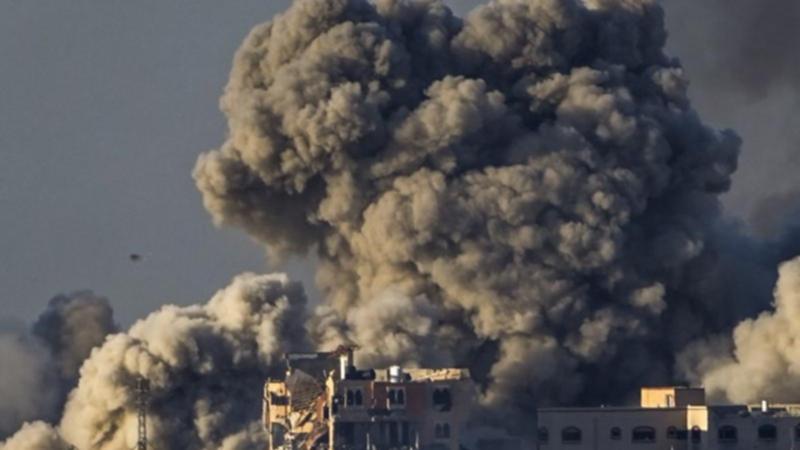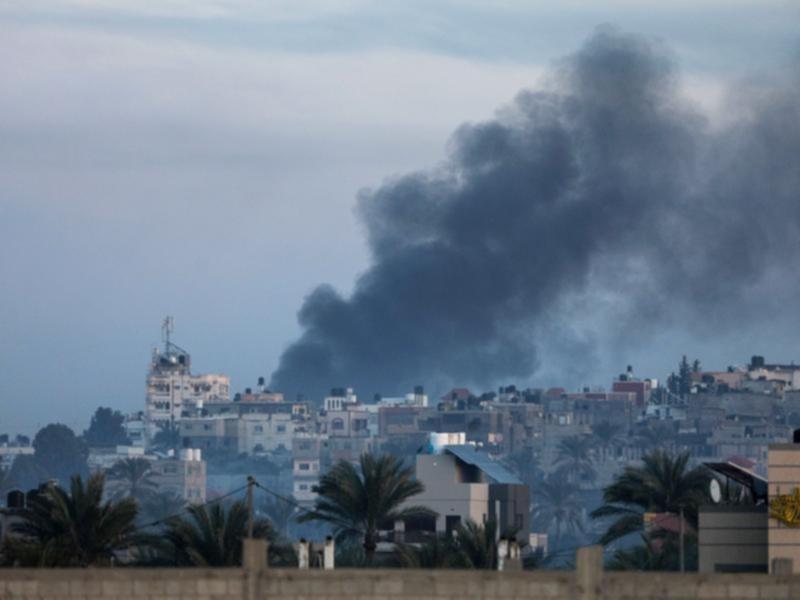The New York Times: Israel says it has begun to scale back war
‘The war shifted a stage. But the transition will be with no ceremony. It’s not about dramatic announcements.’

The Israeli military has begun a new and less intense phase of its invasion of the Gaza Strip, its chief spokesperson said Monday, after weeks of pressure from the United States and other allies to scale back an offensive that has caused widespread devastation and civilian deaths.
The spokesperson, Rear Adm. Daniel Hagari, said that the Israeli campaign had already started the transition to a campaign that would involve fewer ground troops and airstrikes.
“The war shifted a stage,” Hagari told The New York Times in an interview. “But the transition will be with no ceremony,” he added. “It’s not about dramatic announcements.”
Sign up to The Nightly's newsletters.
Get the first look at the digital newspaper, curated daily stories and breaking headlines delivered to your inbox.
By continuing you agree to our Terms and Privacy Policy.
His comments came hours before U.S. Secretary of State Antony Blinken was scheduled to arrive in Israel as part of a multistop tour of the Middle East aimed at preventing the Gaza conflict from escalating into a broader regional war.
Hagari also spoke days before the International Court of Justice in The Hague was expected to begin hearing a case brought by South Africa that accuses Israel of committing genocide against the Palestinians. Gaza’s health ministry says that more than 20,000 people — about 1% of the population — have been killed since Oct. 7, when Israel began attacking the territory in retaliation for the Hamas terrorist attacks on southern Israel.
But it was far from clear that the new phase of Israel’s offensive would be less dangerous for civilians in Gaza. Health officials in Gaza are still reporting scores of deaths every day in airstrikes, and some of the territory’s main hospitals have stopped working as Israeli forces surround them, accusing Hamas of using the medical facilities to hide military infrastructure.
Hagari said that Israel would continue to reduce the number of troops in Gaza, a process that began this month. As Israeli officials indicate that they have degraded Hamas’ military capabilities in northern Gaza, Hagari said the intensity of operations in north Gaza had already started to ebb as the military shifts toward conducting more targeted raids there instead of wide-scale maneuvers.
He said that Israel would now focus on the group’s southern and central strongholds, particularly around the cities of Khan Younis and Deir al Balah.

He said Israel was also aiming to allow more humanitarian aid, including tents to house displaced people, into Gaza. The United Nations says that, as of the end of December, nearly 85% of Gaza residents, or some 1.9 million people, had been forced from their homes amid Israel’s airstrikes and ground campaign.
Hagari denied that Israel was committing genocide, saying that Israel took every precaution to avoid civilian deaths and was trying to increase aid delivery to Gaza.
The admiral said that Hamas had endangered civilians by embedding its military infrastructure within civilian areas. He added that the court should instead focus on how the war started on Oct. 7, when a Hamas-led raid on Israel killed roughly 1,200 people, according to Israeli officials, prompting Israel to respond with airstrikes and an invasion.
“We were the ones who were butchered,” Hagari said.
This article originally appeared in The New York Times.
© 2023 The New York Times Company
Originally published on The New York Times
